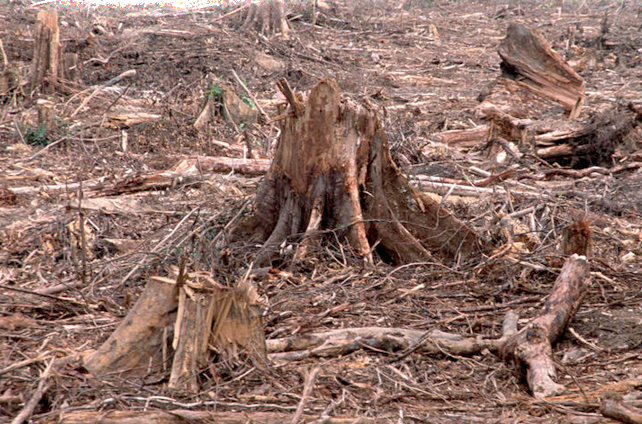
Thinking about the environment
In 1972, the United Nations General Assembly met in Stockholm, Sweden, to designate World Environment Day (WED). It was on the first day of United Nations (UN) Conference on Human Environment. This was the result of discussions on the integration of human interactions and the environment. As many as 113 countries celebrated the Day.
Advertisement
Two years later, in 1974, the first WED was held with the theme "Only One Earth". Since then, it has continued to be the flagship campaign for raising awareness of emerging environmental issues from marine pollution and global warming, to sustainable consumption and wildlife crime.
Since then, the world has celebrated every June 5 as such. Indeed, it is the UN principal vehicle for encouraging worldwide awareness and action for the protection of our environment. Even though WED celebrations have been held annually since 1974, in 1987 the idea for rotating the centre of these activities through selecting different host countries began.
As part of the celebrations, individuals and organisations are encouraged to add activities related to the environment for saving it and also motivate the people for taking initiative toward it.
WED
WED has grown to become a global platform for public outreach, with participation from over 143 countries annually. Each year, WED has a new theme that major corporations, non-governmental organisations (NGOs), communities, governments and celebrities worldwide adopt to advocate environmental causes. The theme for 2017 is 'Connecting People to nature – in the city and on the land, from the poles to the equator'. The host country is Canada.
In 2005, for instance, the programme was subdivided into five: That for Green Cities spanned the first five days. Each day was focused on a specific theme – Urban Power, Cities on the Move, Redesigning Metropolis, Pure Elements and Flower Power.
Since its inception, World Environment Day has given a human face to environmental issues and promoted an understanding that communities are pivotal to changing attitudes about the environment. The day, and in fact, usually a week, is devoted to environmental protection activities, particularly tree planting. In the former East Germany, it was referred to as ‘Tree Week’.
The Day is hosted every year by a different city and commemorated with an international exposition through the week of June 5. The UN, and for that matter, the United Nations Environment Programme (UNEP), uses the Day to stimulate awareness of the environment and enhance political attention and public action.
WED remains a project of the UNEP. The Mission of UNEP is “to provide leadership and encourage partnership in caring for the environment by inspiring, informing and enabling nations and people to improve the quality of life without compromising that of future generations”.
In June, two ’Important’ events – World Environment Day and World Desertification Day – are celebrated worldwide. Unfortunately, both appear to be low-keyed in Ghana.
How much information is available to Ghanaians about World Environment Day (June 5) and World Desertification Day (June 17)? Is it not a shame that we in Ghana do not pay any attention at all to the environment? If any organisation organises any cosmetic tree planting activity or a clean-up campaign, politicians and other dignitaries will fill the venue mostly for the cameras to focus on them.
How well do we keep the numerous dams that we have and how do we intend to treat those that we plan to build? How do we expect to pursue our rain-fed agriculture when we are destroying both surface and underground hydrological systems? Have we noticed that the rainfall pattern has been altered in both frequency and intensity?
There is also a huge environmental problem in the field of agriculture. Indeed, it has been said that agriculture without the employment of agro-chemicals and machinery would not be able to feed a tenth of the world’s population. Yes, but the way we apply these chemicals and use machinery on the field is too frightening and sickening. Somebody in authority in the sector must do something about it and now.
Take the case of ridging, for instance, on the hills where farmers cultivate tomato and other vegetables. Ridges are made along instead of across the hills. This increases the rate of erosion of the top soil required for the growth of the crops.
Most people dread so much to be reminded of one area – mining. Fortunately, a lot is being done today to fight the menace. Indeed, does anyone have any cost-benefit analysis to determine the difference between how much Ghana, as a nation, has earned from the sector and how much the country has lost in terms of environmental hazards mining has created? Never mind the huge ‘profit’ margin that mining companies make and how much salary they pay their employees?
Deforestation/desertification
People are quick to point accusing fingers at the ‘galamsey’ (gather them and sell) operators. Mining in this country, whether surface or underground, and for the surface whether legal or illegal, brings about irreversible environmental problems and ultimately untold hardships to most rural communities due to its effect on agriculture and the hydrological systems.
Even though there is Bauxite deposit at Kibi and Nyinahin, which we are eager to mine one of these years, it is doubtful what the cost-benefit analysis and the threats to life supporting systems for the inhabitants will be.
In Ghana, agriculture, logging and mining destroy the soil. Ironically, the emphasis is usually on the last two. The problem goes on to affect the hydrological systems.With regard to the most dangerous of all the environmental issues of today, I am talking about deforestation and desertification, can we discuss it on June 17!
As a writer and an environmentalist, I share the blame for not doing much to educate the populace. I should have written, at least, this piece much earlier. But well, it is better late than never.



